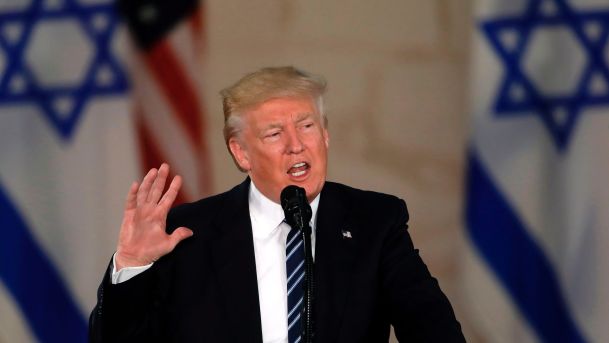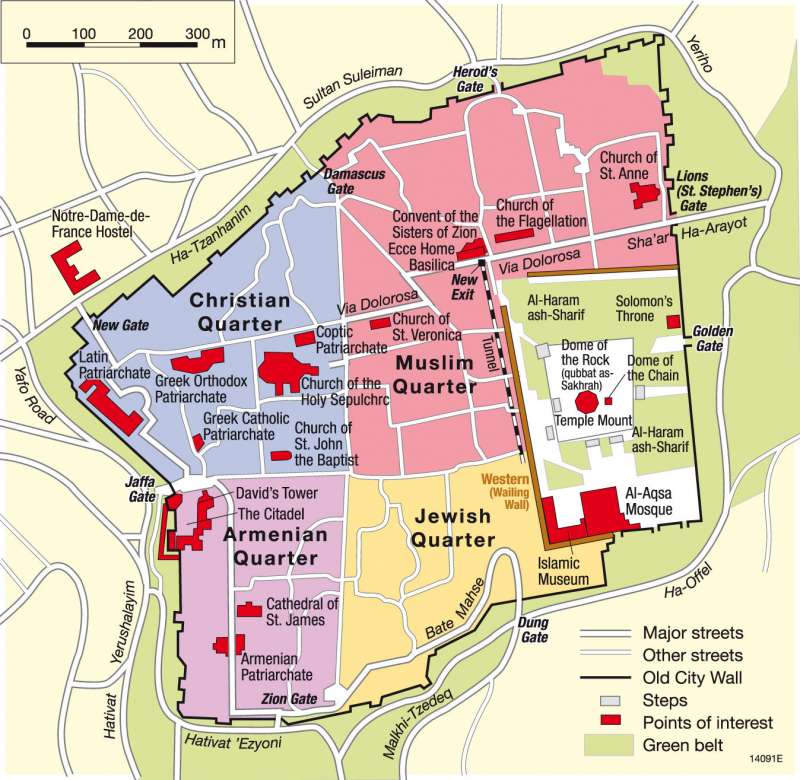The Jerusalem Controversy
January 4, 2018
DISCLAIMER: This article is not meant to accuse or offend any culture, belief, or race.
Jerusalem. Where religion meets politics. Today, the ancient city reclaims the headlines as the spotlight turns back on the 50-year-old dispute.
Before we delve deeper into modern politics concerning Jerusalem’s status, we must educate ourselves on Jerusalem’s religious significance. Jerusalem possesses great significance to the 3 Abrahamic religions – Christianity, Islam, and Judaism – for different reasons. Jerusalem is holy to Christians because it is believed that Jesus was crucified there. Muslims believe that Jerusalem is the 3rd holiest city next to Mecca and Madinah, and they believe it is where Muhammad ascended to heaven. Jerusalem is home to the Jewish Kotel (Western Wall), a wall which is said to have once supported the Holy Temple, the site where it is believed that the rock from which the world was created was located. Clearly, all three religions have their own claims to the city. Today, Jerusalem is divided into different sections as shown:
According to the Quran, the Israelites were banned from Jerusalem. According to the Hebrew Bible, God gave Jews complete right to Jerusalem. A sect of Judaism, however, called the Ultra Orthodox Jews, believe that the Israelites were exiled from Jerusalem and protest against Israeli control of Jerusalem in modern times.
Jerusalem has been the crux of several conflicts, such as the Crusades and the Jewish-Roman wars, not to mention the ongoing dispute between Palestine and Israel. The Ottomans occupied Jerusalem from the early 16th century all the way to 1917, when Britain knocked it out of Ottoman control. Jerusalem remained under British control for 31 years until 1948, when Israel was officially recognized as a nation. From 1948 to 1967, Jerusalem was split between Israel and Jordan until the 6-Day War of 1967, when Israel took over all of Jerusalem. Today, Palestinians and Israelis fight each other for control over “The Holy Land.”
Recently, Donald Trump has recognized Jerusalem as the capital of Israel. This statement may give rise to new conflicts between Arab and Jewish states. On Monday, December 18, the U.S., one of the Big Five of the security council (along with Britain, France, China, and Russia) vetoed the U.N. decision to void Trump’s claims. Without full agreement among the Big Five, a resolution cannot be reached. The U.S. was outnumbered 14 to 1. Meanwhile, current regulations say that the status of Jerusalem should be decided among Palestinians and Israelis. On December 21, however, the U.N. General Assembly voted on the statement made by the U.S. Only 9 countries voted in favor of Trump’s statement while 128 countries voted against him, heavily backed by the U.K. There have been many groups protesting against the U.S. President’s stance on Jerusalem. Despite the General Assembly vote, protests persist in many countries, such as Palestine and Pakistan.
Work Cited
“What makes Jerusalem so holy?” BBC News, BBC, 30 Oct. 2014,
www.bbc.com/news/world-middle-east-26934435.
Perowne, Stewart Henry, et al. “Jerusalem.” Encyclopædia Britannica, Encyclopædia Britannica,
inc., 15 Dec. 2017, www.britannica.com/place/Jerusalem.
Little, Becky. “Why Jews and Muslims Both Have Religious Claims on Jerusalem.” History.com,
A&E Television Networks, 6 Dec. 2017,
www.history.com/news/why-jews-and-muslims-both-have-religious-claims-on-jerusalem.
History.com Staff. “Jerusalem.” History.com, A&E Television Networks, 2017,
www.history.com/topics/history-of-jerusalem.
Beaumont, Peter. “US outnumbered 14 to 1 as it vetoes UN vote on status of Jerusalem.” The
Guardian, Guardian News and Media, 18 Dec. 2017,
www.theguardian.com/world/2017/dec/18/us-outnumbered-14-to-1-as-it-vetoes-un-vote-on-status-of-jerusalem.






